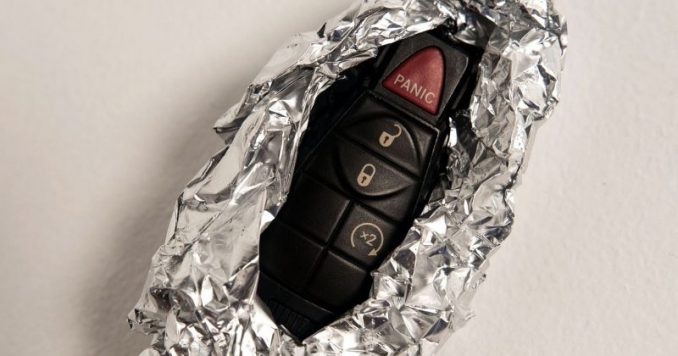In the bustling city of New York, a former FBI agent decided to share a simple yet intriguing secret with the world. A secret that might sound unusual at first, but would soon prove to be an invaluable security measure to protect one of life’s most significant investments: a car.
In the modern world, people rely on their cars for a plethora of tasks. From commuting to work, shuttling kids to their sports practices, or stocking up on weekly groceries, a car is an essential component of everyday life. Naturally, it becomes crucial to keep this prized possession safe from harm.

Throughout history, automobile owners have explored various tips, tricks, and devices to shield their cars from potential theft. Who could forget the iconic 1990s-era Club? This visual deterrent locked onto the steering wheel, signaling to prospective thieves that they would need to put in extra time and effort to make off with the vehicle. While it didn’t guarantee complete security, the Club was often enough to deter carjackers, making them think twice before attempting a heist.
As technology advanced, the options for vehicle protection grew in complexity. However, with the constant specter of cyberhacking looming, modern drivers now face a new challenge: securing their key fobs. Thieves have evolved; no longer do they merely break into vehicles. These criminals now exploit vulnerabilities in key fobs to gain easy access without leaving a trace, as demonstrated in the video below.

Fear not, for there is a simple yet effective solution that can be found in your very own kitchen pantry. A humble piece of aluminum foil can make all the difference in safeguarding your key fob’s signal, as reported by Consumer Affairs.
Enter Moshe Shlisel, the CEO of GuardKnox Cyber Technologies and an Israeli Air Force veteran. He has contributed to developing cyber protection for a wide array of systems, ranging from missile defense to weaponized fighter jets. Shlisel’s method for storing his own key fob at home? Placing it in a metal can and wrapping it with a piece of aluminum foil for added security.
The rationale behind this tactic is quite simple: cars are perpetually receptive to start signals from key fobs. Thieves can obtain devices that amplify these signals, enabling them to exploit an inadequately shielded fob. This renders unprotected key fobs, whether on a counter, in a purse, or in a pocket, vulnerable to being copied or hijacked by criminals.
Holly Hubert, a cybersecurity expert, and former FBI agent acknowledges that keeping up with the ever-changing landscape of cyber threats is a daunting task for consumers. As the CEO of GlobalSecurityIQ in Buffalo, New York, she describes aluminum foil as “the most inexpensive way” to protect a car’s key fob, as cited by WSB-TV.
In the meantime, Shlisel collaborates with various auto manufacturers and expert engineers to devise new ways to tackle this rapidly evolving menace. For now, he recommends placing the key fob in an aluminum-wrapped can at home, and using aluminum foil in a purse or pocket when out and about.
And so, the story of the aluminum foil trick spread far and wide, giving people an affordable and easy way to protect their cherished automobiles from the ever-looming threat of cyber criminals.
WATCH the video below for more details:
Sources: Taphaps, Consumer Affairs, WSB-TV
Leave a Comment